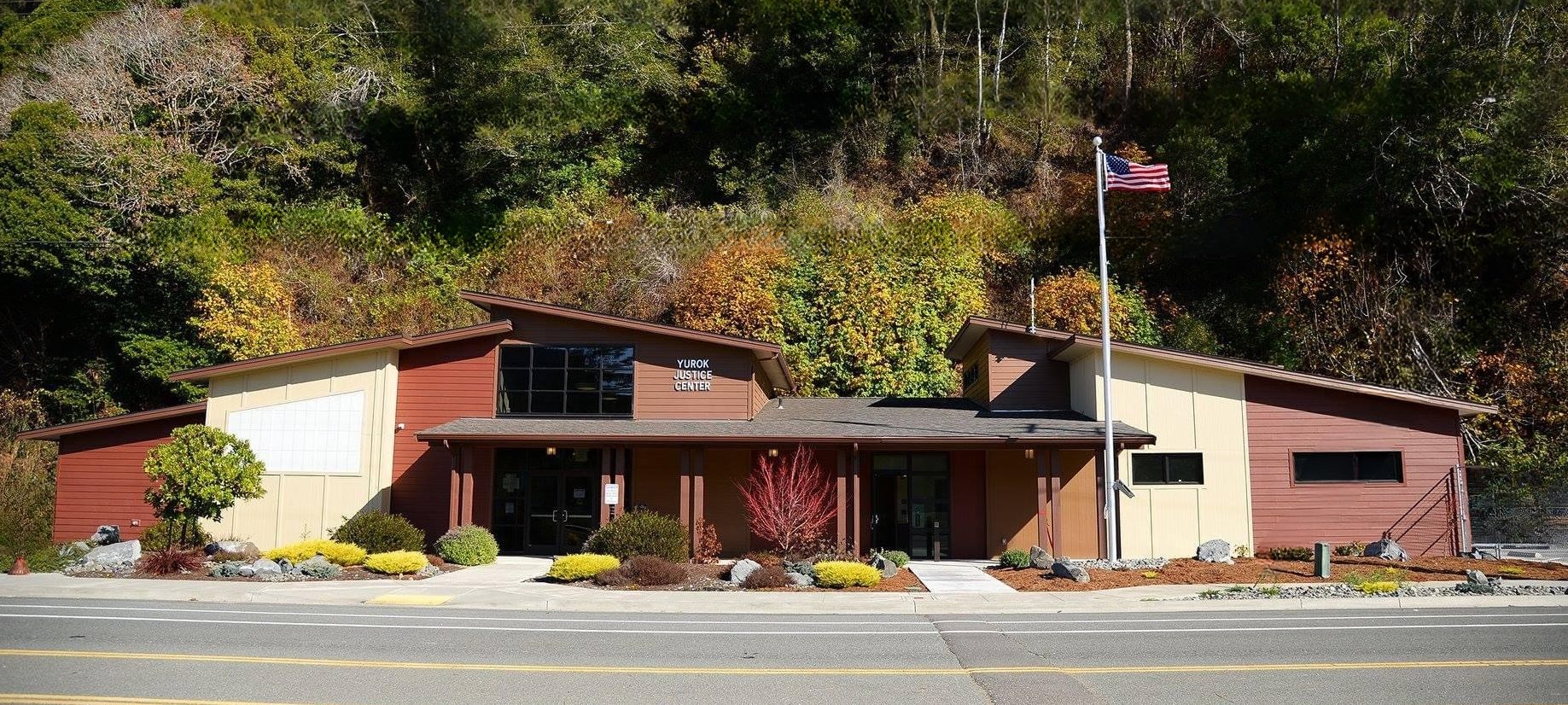Last week, the Yurok Tribal Court officially launched its mobile showers and laundry facility at the Park City Superette property off Elk Valley Road in Del Norte County, where tribal, county and non-profit service providers offered various forms of assistance to indigent residents.
The Tribal Court’s Community Counselor Ron Bates, Outreach Specialist Mark Sanderson and volunteer Marci Davis helped a steady flow of people take advantage of the new portable self-care trailer. They also populated two tables with displays about substance abuse disorder and pamphlets detailing treatment centers in Humboldt and Del Norte Counties to make these critically important resources easily available to those in need. The tribal team also distributed clothes, first aid supplies, snacks and the life-saving drug Narcan.
“We handed out Narcan because it is needed everywhere. We gave out a lot of sweatshirts, due to the cold weather,” Bates said. “It was a very nice crowd. Everyone was happy that we were there.”
Powered by a generator, the completely self-contained mobile amenity trailer has two private showers, one for men and another for women, as well as a clothes washer and dryer.
“For those living on the street, a warm shower and clean clothes can make a big difference,” said Yurok Tribal Court Wellness Program Manager Lori Nesbitt. “If they are suffering from substance abuse disorder, it might be the boost they need to get into treatment.”
At last week’s event, each person was able to wash up to 10 articles of clothing. Prior to placing their clothes in the washer, participants ran all garments through two rollers to ensure that nothing sharp was left in their pockets. The showers weren’t open because another organization brought multiple bathing stations.
As people washed clothes, the Tribal Court team conducted medical questionnaires with participants and shared information about local healthcare resources. Chronic health problems, including physical or psychological pain, are often the root cause of substance abuse disorders. Those who address these issues are far more likely to successfully recover from drug and/or alcohol abuse. Feeling clean helps too.
The Tribal Court plans to bring the portable amenities to multiple sites within and near Yurok ancestral territory. “This summer, we’ll be heading up to Wautec, Weitchpec and Eureka,” Bates said. “No matter where we go, we’re not reliant on grid-based electricity.”
The Tribal Court is looking for volunteers to help administer this service. If you’d like to volunteer, please contact Yurok Tribal Court Wellness Program Manager Lori Nesbitt at 877-YT-Court ext. 4044.







